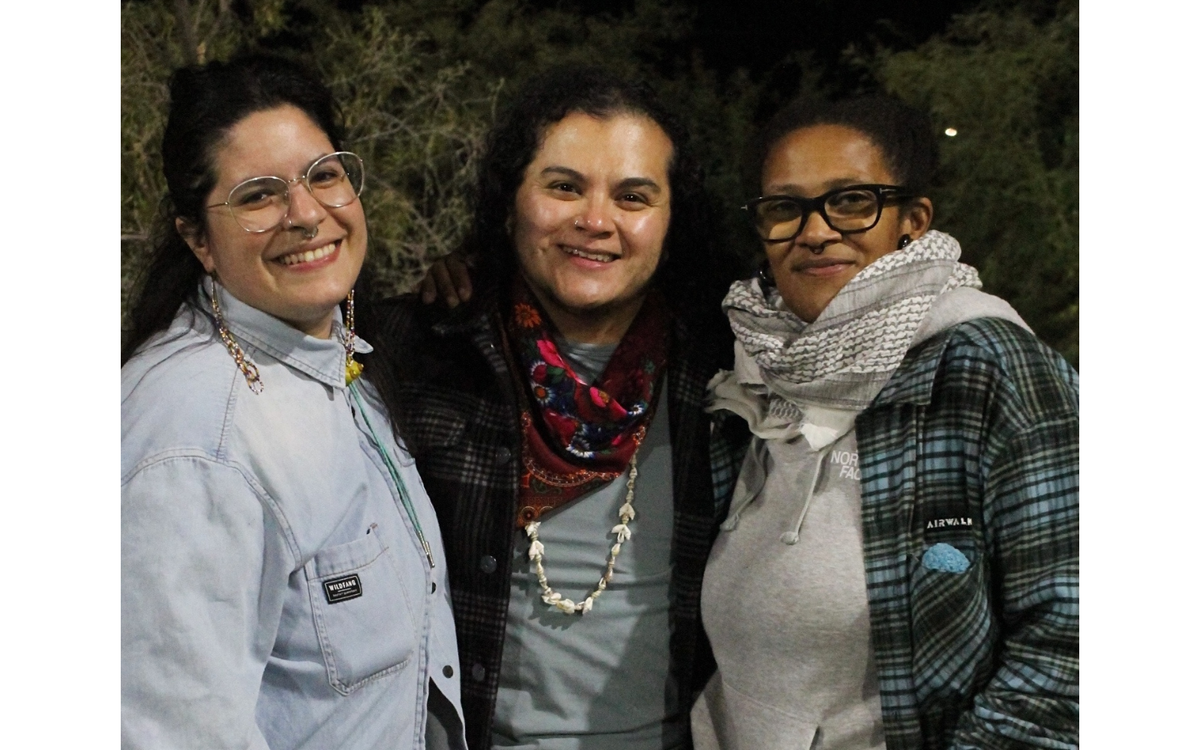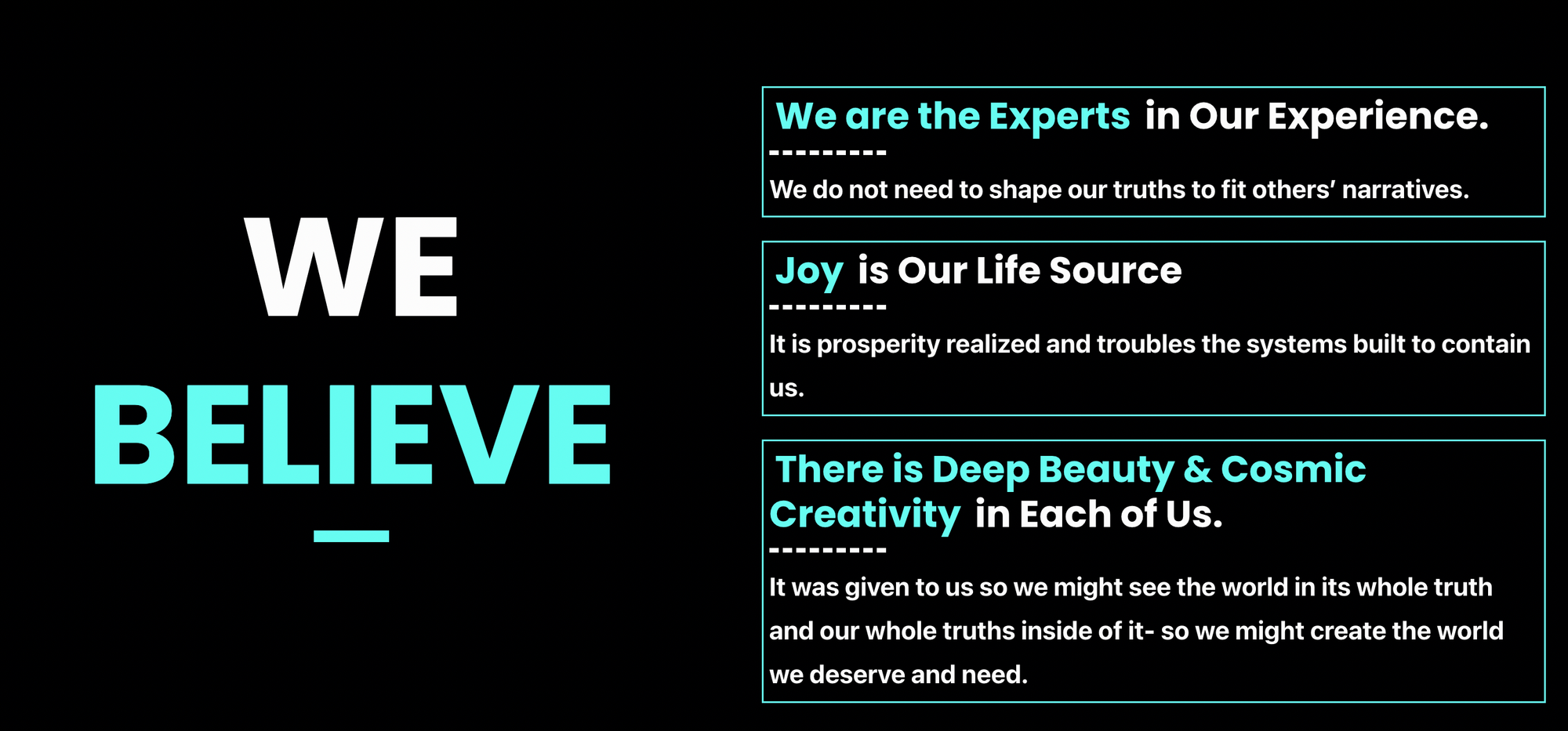Collective builds community and wellness for BIPOC and LGBTQ individuals
The organization operates on a holistic model and seeks to teach people how to live in wellness. KCC considers all aspects of wellness, including the spiritual and emotional sense.

The holidays can be a challenging time, especially to some members of the LGBTQ+ community who may be experiencing isolation from their families.
One local group is pushing back against that loneliness through its Queer Cheer program, a three-step initiative that connects people with customized wellness boxes, a holiday meal and support.
Queer Cheer is a program offered by Kindred Connections, a wellness collective that offers support and services to Black, Indigenous and People of Color, two-spirit, gender non-comforming, and queer individuals in Southern Arizona.
The collective began as an idea between friends Vikó Velazquez Morales, T Loving, and Mirely Baca, who recognized the gaps in support for BIPOC and queer people in the community and decided in 2019 to make a change.
Shying away from hierarchical structures and dynamics, this group calls themselves core members, each of them bringing their own unique life experiences and expertise to the collective.
“T is someone who has figured out how to make things happen,” Morales told Tucson Spotlight in a recent interview. “Mirely is a registered nurse and has experience in supporting big projects and being organized and knowing where to start.”
Morales moved to Tucson from Mexico City when they were 4 years old. They attended Rincon High School and went on to study French, earning their undergraduate degree from Arizona State University in just three years.

After graduation, Morales stayed in Phoenix and started an apprenticeship with Public Allies, a social justice organization funded by Americorps and committed to recruiting leaders who want to create meaningful change in the community.
From there, Morales was connected with one.n.ten, a resource center for LGBTQ+ youth, where they spent the next two years working.
Though Morales enjoyed the work they were doing, keeping the space clean and inviting for visitors, they grew tired of what they said can be a vicious cycle in nonprofit work.
“Nonprofits are a construct to make it seem like there is support for social issues and oftentimes, things are underfunded, people are super burnt out. And there’s just not enough funding,” they said. “That was a realization that came to me after being in that line of work for a long time.”
So, with the help of friends Baca and Loving, KCC was born.
After taking a hiatus due to the COVID-19 pandemic they were able to move forward and make their idea a reality.
The organization operates on a holistic model and seeks to teach people how to live in wellness. KCC considers all aspects of wellness, including the spiritual and emotional sense.
“When you go into your everyday Western medical spaces, there is a very regimented and strictly defined concept of what health is,” Morales said. “When (Western medicine) does anything, it is in response to something that has already happened.”
KCC is housed under the umbrella of the non-profit organization Alliance for Global Justice, which was founded in 1998 with a goal to achieve social and economic change by helping to build a stronger and more unified grassroots movement.
Morales said funding is a challenge, because the core members are very intentional when it comes to the money they will accept.
“We are very mindful of where we get our funding from and what we get funding for,” they said. “One of the problems you often run into in the grant world is having grants that only cover specific costs and not being able to cover other pieces of what you want to do.”
One funder that has become essential is the Trans Justice Funding Project. Started in 2012, TJFP seeks to deliver direct, unrestricted funding to trans organizations led by and for trans people, no strings attached.
Thanks to funding and community support, KCC has been able to host a steady stream of events throughout the year to create a welcoming space for BIPOC and queer communities in Southern Arizona.

Through the Queer Cheer program, people are able to fill out a Google form and let KCC know what would be helpful for them to feel safe and supported during the holidays.
“Though other organizations do things like this, we wanted to open up options for these individuals and give them their choice back,” Morales said. “People deserve agency.”
The Queer Cheer box has three parts. The first is a mini-grant delivered through Cash App or Zelle; each person who signs up receives an equal amount of available money.
Next is the wellness packet, which is curated by local herbalists and includes medicines, teas, and candles. This part of the package focuses on things that are supportive of the immune system.
The last part of the package is a free holiday meal and foodways workshop, presented by the Community Food Bank of Southern Arizona.
During the first year of Queer Cheer, KCC passed out 10 boxes. This year, they’re passing out 40 boxes.
“Getting to feel like I get to offer my community and my friends something special is my favorite part of what we do,” Morales said. “The whole goal of KCC is to get our people good stuff.”
Morales’ advice for anyone wanting to form their own collective is to start with bringing together the people they like to dream with and leaning into their desire and support.
“Listen to the people you are trying to work with and those that are showing up to your events,” they said. “Hear what they have to say.”
McKenna Manzo is a journalism major at the University of Arizona and Tucson Spotlight intern. Contact her at mckennamanzo@arizona.edu.
Tucson Spotlight is a community-based newsroom that provides paid opportunities for students and rising journalists in Southern Arizona. Please support our work with a paid subscription.



